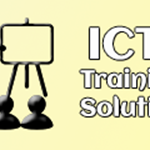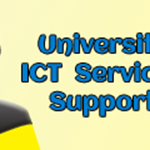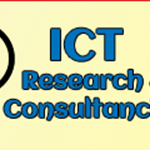Master of Science in Information Technology Management (MSITM)
This programme aims at producing highly skilled, knowledgeable, independent and adaptable information technology management graduates who are well versed with necessary skills and knowledge acquainted with high level of substantial and syntactic technological pedagogical content knowledge thus equipped for employment in IS management profession and other related fields of endeavour. Graduates will be able to demonstrate what have learnt by making reasonable decisions, developments and outcome of products or services in the process of servicing customers whether public/private or self-employed. Likewise, graduates are expected to be able to discuss different IS related issues with special emphasis to theoretical, conceptual, practical, managerial and policy matters.
Programme Summary
Course Name: Master of Science in Information Technology Management
Course Initials: MSITM
Duration: Minimum 18 months
Total Units: 18
Mode of Deliverence: Blended Mode
Programmes Informations
The minimum qualifications for the Master of Science in Information Technology Management shall be a Bachelor degree in all fields related to Information Technology Management subjects.
(a) For admission to the Master of Science in Information Technology Management degree of The Open University of Tanzania, a candidate shall either hold a BSc ICT or BSc in Data Management degree of The Open University of Tanzania or a qualification from an approved institution of higher learning, deemed to be equivalent to a degree of The Open University of Tanzania of not less than GPA of 2.7.
(b) Candidates with PASS division will also be considered for admission if:
(i) Their undergraduate performance in Information Technology Management related subjects was a B grade average or above; and
(ii) They have satisfied the ICT department and the faculty in general that they have exhibited academic potential through extensive field work, subsequent research experience and/or additional training in the field of Information Technology Management.
(c) Candidates who hold unclassified degrees should have a credit or, a distinction in the subjects related to Information Technology Management.
(d) Candidates from all fields related to BSc in IT Management, BSc in Computer Science, BSc in Computer Engineering or BSc in Electronics including but not limited to Informatics, Microelectronic Engineering, ICT, Applied IT, Telecommunication, Aerospace, Space Technologies, Satellite Communications, Networks, Multimedia, Digital Arts, Internet Science and Technology, Software Engineering, IS Management, Computing in Intelligent Systems, Computer Games Development, Multimedia Technology and Media Informatics, Cyber Security, Geo-informatics, Data Science, Data Management, Information Sciences and Engineering, Big Data, Business Analytics, Digital Forensics, Applied Cloud Technology, Internet of Things and Mobile Application Development.
(e) Candidates with PASS or higher division in the Bachelor programmes in the fields of Science, Business and Arts subjects including Physics, Chemistry, Mathematics, Economics, Finance, Management, Commerce, Accounting, Marketing and Business Administration
The Master of Science in Information Technology Management is a mixed mode programme and consists of taught courses and dissertation. The programme consists of a total of 18 units. Candidates must complete and pass 6 core courses with a total of 12 Units and a Dissertation with 6 units. The dissertation is compulsory to all candidates.
Dissertation will take nine months and will include proposal presentation, defense and other procedures as regulated by the DPGS.
|
CORE COURSES |
|||
|
COURSE TITLE |
CODE |
Units |
TCU CREDITS |
|
Scientific Research Methods |
OCS 601 |
1 |
10 |
|
IT Entrepreneurship and Management |
OIM 601 |
1 |
10 |
|
IT Security Planning and Management |
OIM 602 |
2 |
20 |
|
IT Strategic Management, Communications and Leadership |
OIM 603 |
2 |
20 |
|
Legal and Ethical Aspects of Computing |
OIM 604 |
2 |
20 |
|
Management Information Systems |
OCS 607 |
2 |
20 |
|
Dissertation |
OCS 610 |
6 |
60 |
|
ELECTIVE COURSES (Choose 1) |
|||
|
COURSE TITLE |
CODE |
Units |
TCU CREDITS |
|
Networks and Smart Computing |
OIM 605 |
2 |
20 |
|
Data and Knowledge Management |
OIM 606 |
2 |
20 |
Fee Structure
|
S/N |
ITEM |
LOCAL (TSH) |
Fee for EAC/SADC(USD) |
Fee for Non EAC/SADC(USD) |
|
|
1 |
Examination fees paid annually |
20,000 per examination paper except ODEX which is 30,000 per paper |
20 USD per examination paper except ODEX which is 30 USD per paper |
20 USD per examination paper except ODEX which is 30 USD per paper |
|
|
2 |
Students Organization fee paid annually |
20,000 |
40 |
60 |
|
|
3 |
Students ID Card |
20,000 |
20 |
20 |
|
|
4 |
Quality Assurance fee paid annually |
20,000 |
20 |
40 |
|
|
5 |
Registration Fee |
50,000 |
100 |
100 |
|
|
6 |
Plagiarism fee |
20,000 |
20 |
20 |
|
|
7 |
Tuition Fee |
TShs. 250,000/= per unit; hence, TShs. 4.5m for a total of 18 units. |
210 USD per unit; hence, 3,780 USD for a total of 18 units. |
350 USD per unit; hence, 6,300 USD for a total of 18 units. |
|
S/N | ITEM | LOCAL | Fee for EAC/SADC(USD) | Fee for Non EAC/SADC(USD) |
1 | Examination fees paid annually | 20,000 per examination paper except ODEX which is 30,000 per paper | 20 USD per examination paper except ODEX which is 30 USD per paper | 20 USD per examination paper except ODEX which is 30 USD per paper |
2 | Students Organization fee paid annually | 20,000 | 40 | 60 |
3 | Students ID Card | 20,000 | 20 | 20 |
4 | Quality Assurance fee paid annually | 20,000 | 20 | 40 |
5 | Registration Fee | 50,000 | 100 | 100 |
6 | Plagiarism fee | 20,000 | 20 | 20 |
7 | Tuition Fee | TShs. 250,000/= per unit; hence, TShs. 4.5m for a total of 18 units. | 210 USD per unit; hence, 3,780 USD for a total of 18 units. | 350 USD per unit; hence, 6,300 USD for a total of 18 units. |
Upon successful completion of the programme it is expected that a candidate shall have acquired the following competences;
Develop a deeper knowledge in computer science/IT that is both conceptual and empirical based
Enhance their awareness of the growing importance of computer science/IT solutions and innovations to the problems/opportunities in our society, nation and the world at large
Develop capacity to apply critical and analytical skills in understanding and applying in our context from small to complex problems of computer science/IT industry
Gain a comprehensive understanding and be able to communicate, prepare sound reports and carry out computer science/IT related research at minimum guidance
Develop skills, values and knowledge to create end to end secure information systems to support the core business and/or an ecosystem of solutions that are interoperable or inter-dependent
Develop the capacity on the appropriate knowledge, values and skills that support the life-long learning and sustainable development in relation to computer science/IT industry in the country and beyond.
Coursework (Assignment/Practicals/Term Paper/Timed Test) carrying 30%
Final Examination carrying 70%






